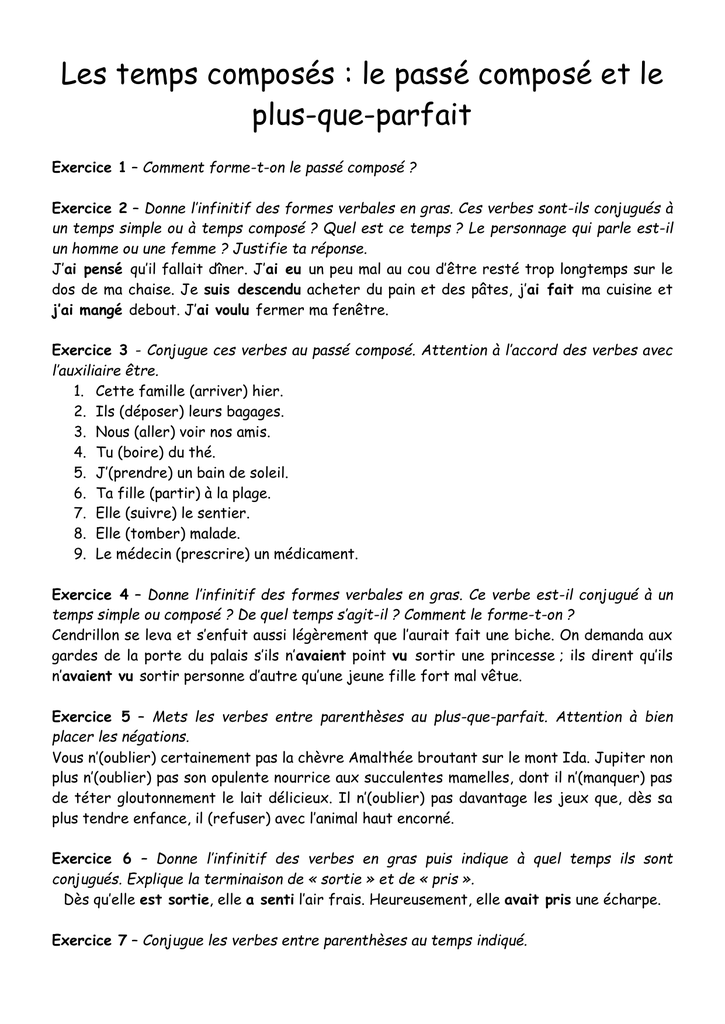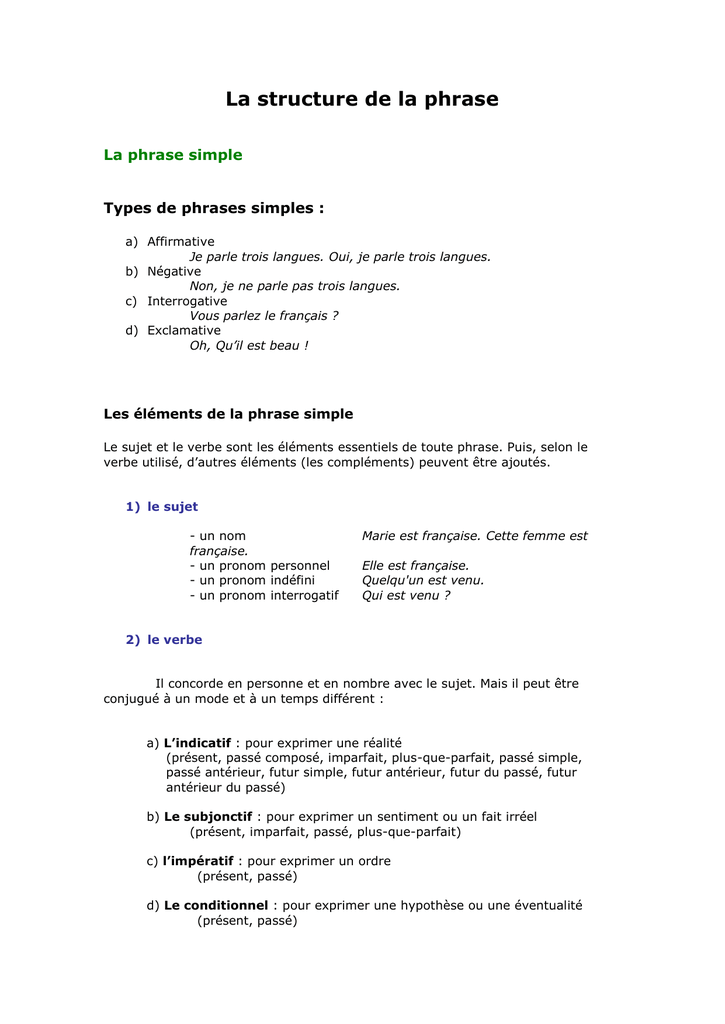


When a verb takes être as a help verb, the participle agrees in gender and number with the subject.Įxample: Il était all é à l’école de musique.

This agreement is necessary in the following cases: Agreement of the participe passéįor some verbs, the participe passé has to agree in gender and number with either the subject or the object of the sentence. If the infinitive ends in -re, the participle ends in uįor the irregular verbs, however, we have to look up the participle forms in the list of irregular verbs or check the verb conjugator – or simply learn the correct forms by heart.If the infinitive ends in - ir, the participle ends in i Example: fin ir – fin i.If the infinitive ends in -er, the participle ends in é Example: aim er – aim é.Example: À quelle heure étais -tu sorti ce matin-là ? What time had you left that morning? no direct object, sortir = leave but: Avais-tu sorti les carottes du frigo hier soir ? Had you taken the carrots out of the fridge yesterday evening? direct object: les carottes, sortir = take out Participe passé: the past participleįor the regular - er/- ir/-re verbs, the participe passé is easy to construct: In this case, the meaning of the verb often changes. We use avoir when descendre, (r)entrer, (re)monter, retourner and sortir are followed by a direct object. I had gone to Brittany on holiday.Ĭheck out our page on avoir/être to pick up some tips on remembering which verbs take être as their auxiliary in the compound tenses. with the following verbs of movement and their related forms: naître/mourir to be born/to die, aller/venir to go/to come, monter/descendre to go up/to go down, arriver/partir to arrive/to leave, entrer/sortir to enter/to go out, apparaître to appear, rester to stay, retourner to return, tomber to fall and their related forms such as: revenir to come back, rentrer to go back in, remonter to go back up, redescendre to go back down, repartir to leave again.Įxample: J’ étais parti(e) en vacances en Bretagne.with reflexive verbs Example: Je m’étais trompé(e) dans mon calcul.Most verbs construct the plus-que-parfait using avoir, however être is used as the auxiliary verb in the following cases: Example: Je ne m’étais pas trompé dans mon calcul. I had left.→ I had not left.įor reflexive verbs, the reflexive pronoun comes after the first part of the negation (ne) and before the auxiliary verb (avoir/être). Note: You must be logged into your Progress with Lawless French account to take these tests.In negative sentences, the past participle comes after the second part of the negation (pas). Think you’ve got it? Test yourself on the French pluperfect with theses fill-in-the-blanks exercises: You would have passed the test if you had studied.Īfter certain conjunctions, French requires the future perfect where the past perfect is used in English – learn more. Tu aurais réussi à l’examen si tu avais étudié. If I had finished the work, I would have left early. Par exemple… Si j’avais fini le travail, je serais parti tôt. The past perfect is used without a subsequent action in hypothetical si clauses – when something could or would have happened if a condition, stated with the past perfect, had been met. I did the laundry and Ana mowed the lawn. J’ai fait la lessive et Ana a tondu le gazon. J’ai fini tout le travail et puis je suis parti. If you’re just making a list of two things that occurred, either one after the other or at the same time, you don’t need the past perfect. It’s important to understand that the past perfect is used when there is a relationship between the two verbs: the one in the past perfect led to or had some bearing on the one that came second. I had finished all the work before leaving. Par exemple… J’avais fini tout le travail avant de partir. The second action may be stated with avant de + infinitive or avant que + subjunctive, or the verb can even be implied with avant + noun, as long as that noun refers to something in the past.

– Tu n’as pas répondu à la porte hier soir. She had finished all the work when I left. The sun had already started to set when I arrived.Įlle avait fini tout le travail quand je suis parti. Par exemple… Le soleil avait déjà commencé à se coucher quand je suis arrivé. The action that occurred second is usually stated with another past tense, such as the passé composé or imperfect. The past perfect is used for the verb that happened first, the one that is further in the past. The use of the past perfect is very similar in French and English. The past perfect, also called the pluperfect, is a verb tense that distinguishes between two related things that happened in the past, indicating which one occurred before the other.


 0 kommentar(er)
0 kommentar(er)
